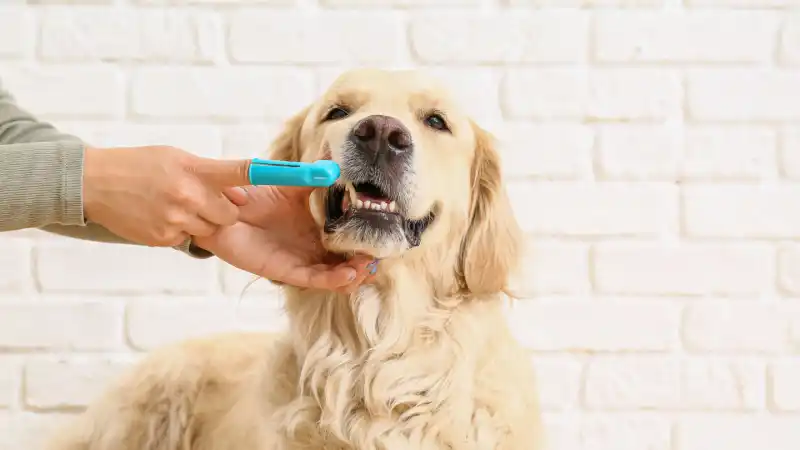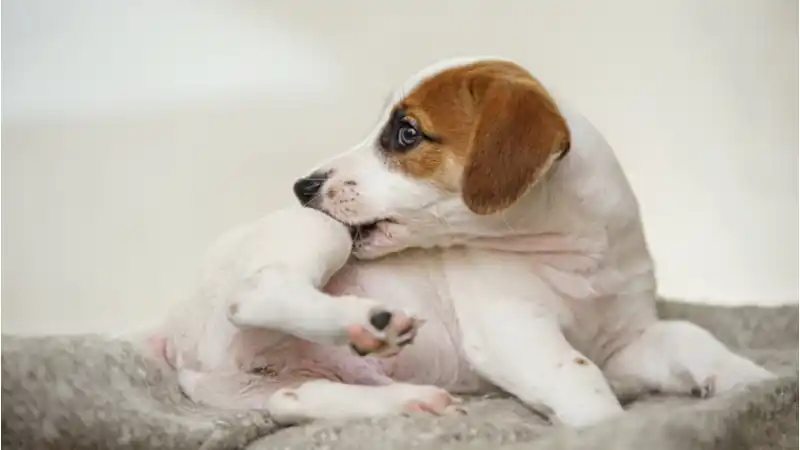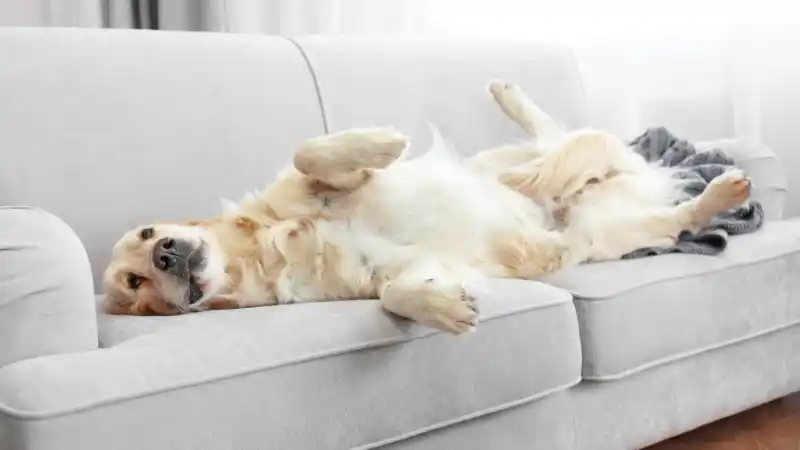Creating a Dog-Friendly Yard
Summer is here and everyone wants to be outside all the time - including your dog! Make sure your yard is four-legged-friendly with these quick tips.
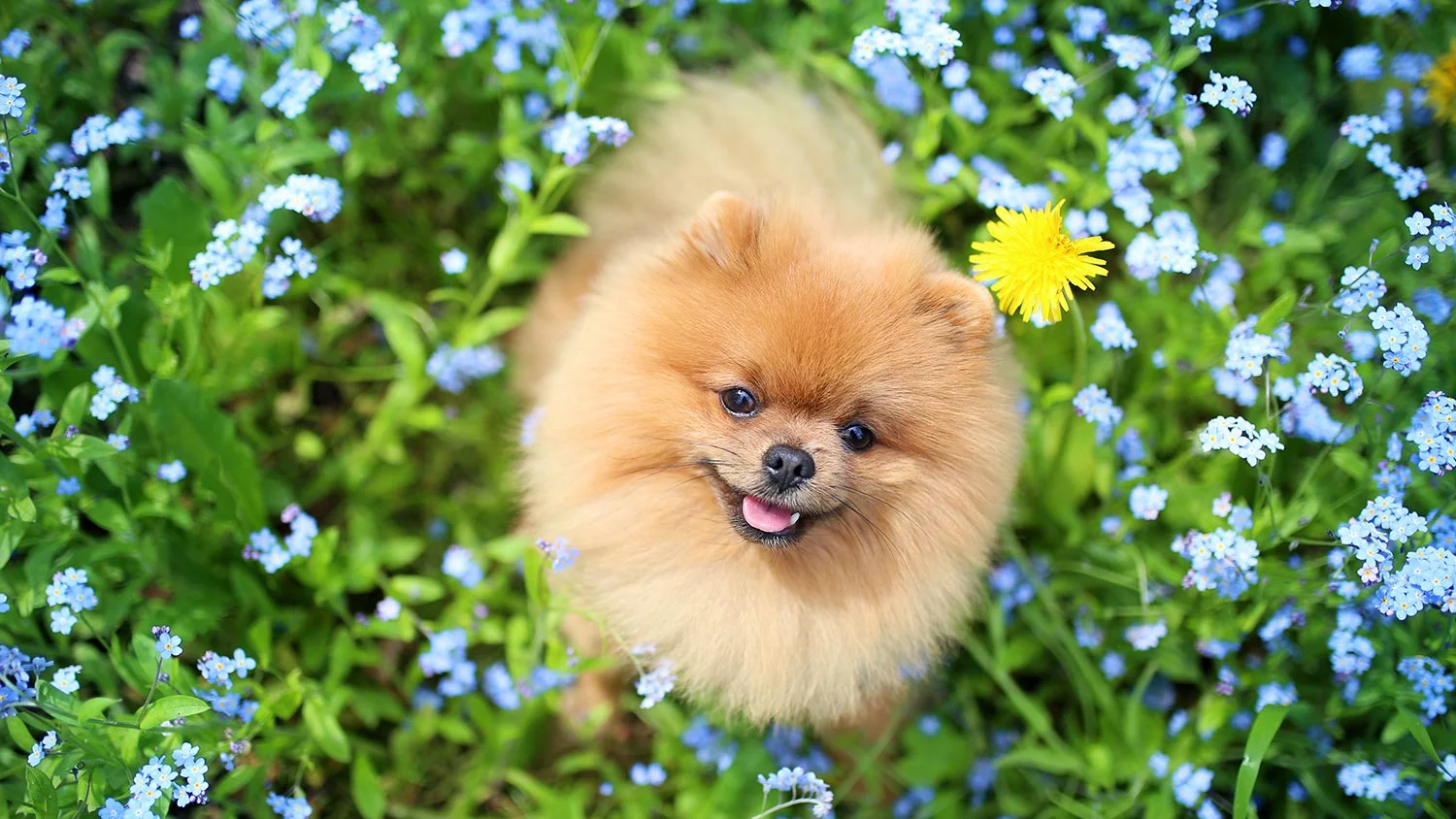
With the change in weather, odds are good you’ll be spending more time out in the yard with your dog. Keeping a yard clean and dog-friendly can be a tricky combination. Here’s how can you prepare your garden to take on an enthusiastic pup!
Lay Down Mulch
Whether you’re mulching your entire yard or just a few flower beds, there are several important things to remember. Cocoa bean mulch is highly toxic to pets and should never be used in a yard with a dog. It contains theobromine, a toxic compound (also found in chocolate) that causes muscle tremors, hyperthermia, and seizures when consumed by dogs. Pine, cedar, and hemlock mulches are some of the safest choices for the garden, although you should never let your dog chew on mulch.
Planting Safe Options
Choosing what flowers you’ll plant can be a lot of fun, but knowing which ones are poisonous to your dog is important! As pretty as those mums may be, they can cause blindness and seizures when consumed by dogs. Peonies, Carnations, Daisies, and Daffodil bulbs are all dangerous for your dog. Stick to safer choices such as Petunias or Marigolds. There are even some plants you can share with your dog!
Fertilizers, Pesticides, and Insecticides
Although it may be tempting to spray your gardens with fertilizers and weed killer, these chemicals can have a detrimental effect on your pup. Insecticides and snail bait are some of the largest threats to pets. Ensure that you use pet-safe options or try to plant flowers that naturally repel insects.
Carefully read the instructions of your chosen fertilizer to determine how long your pet should remain off the treated area. Never leave bags unattended where your dog can get into them. If your dog shows symptoms of poisoning such as vomiting and diarrhea shortly after you have used these types of products, immediately take him to your veterinarian.
Careful Composting
Composting is a great natural way to improve your garden’s soil, but check the contents of your compost heap before spreading it in dog-friendly areas. Certain composted items, such as coffee grounds, can make your dog sick. While composting your dog’s waste might seem like a good idea, dog feces harbors harmful bacteria and can make a person sick should it get near edible crops.
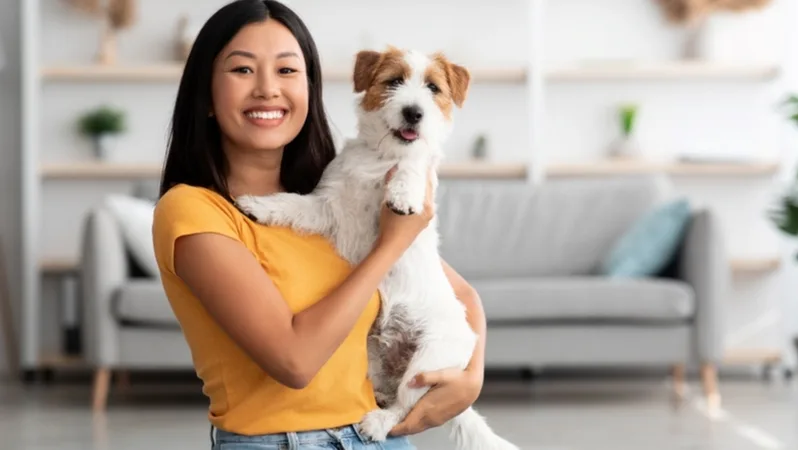
Every Dog and Cat Deserves the Pet Insurance of Champions
Get prize-winning care for your pets.
Beware of Predators
Depending on where you live, you may not have to worry about predators, but for those that see a lot of wildlife it’s important to take precautions. Fencing in your yard with solid, tall fencing will deter wildlife from entering. The majority of predators are active during sunrise and sunset, however it’s not out of the ordinary for starving animals to enter your yard during the day. In addition, birds of prey, such as hawks, can grab a puppy or small dog if they’re left unattended in your yard. Picking up after your dog, removing fruit and nuts from under your trees, and securing trash cans with a locking, airtight lid can reduce the chances of attracting unwanted animals.
Dangerous Insects
During the winter, it’s easy to forget about bugs. Knowing what insects inhabit your yard can help keep you and your dog safe from bites, stings, parasites and other injuries. It’s not unusual to see your dog chomping on a moth or grasshopper. These bugs are okay for your pet to eat and will add a little protein to his diet!
However, insects that feed on waste, such as crickets and grubs, can cause worms in your dog when eaten. Mosquitos can carry heartworm and fleas are known to cause tapeworms. Caterpillars and many butterflies are toxic when consumed and can cause painful intestinal problems. Venomous spiders and fire ants are tricky to spot but can cause serious harm to your pup.
Bug Prevention
Maintaining a flea/tick prevention routine can help keep your dog safe. Mowing your lawn and pruning trees and shrubs will reduce the number of dangerous insects. Keep a close eye on your yard to ensure you don’t have fire ant nests, spider webs or large quantities of caterpillar cocoons. While spraying to remove insects may be the most effective method, be careful to use pet-friendly spray and keep your dog away from the treated area.
Water Features
Whether it’s a pool, a pond or a fountain, water features in your yard can be dangerous to dogs. Even if you teach your dog to swim, you should always keep an eye on him when he’s in or near a body of water. In 2014, there was an estimated 5,000 family pets that drowned in backyard pools. Fencing in water features to restrict access and teaching your pup how to swim can help to keep him safe!
Stagnant water is a breeding ground for mosquitos that can carry harmful diseases. Letting your dog drink from puddles or standing water can result in diseases such as Leptospirosis. Leptospirosis is a bacterial infection that can cause liver or kidney failure. Ingesting dirty water can also cause an upset stomach, so refrain from letting your dog stop at that puddle and instead provide a clean bowl of water.
Managing Mud
Rain-filled days can saturate the ground making it easier for a rambunctious dog to tear up grass. After all your grass is gone, every dewy morning your dog will have his choice of mud patches to roll in. Replacing your grass with mulch or a stone path in highly trafficked areas of the yard is a good way to keep the mud down and your yard looking neat. Save your grass by giving your yard time to dry after a rain storm by heading to a dog park or going on a walk!
Enjoy Your Garden!
Taking some time to prepare your yard for your dog can ensure that you don’t end up with a muddy mess. Planting flowers and vegetables that are pet-friendly and using pet-safe materials will ensure your dog can enjoy the yard as much as you do!

Every Dog and Cat Deserves the Pet Insurance of Champions
Get prize-winning care for your pets.

Mary comes to AKC Pet Insurance with an extensive background in animal care. As a lifelong animal lover, she has a passion for promoting pet health and wellness. Mary lives in Kentucky with her orange kitty, "Cat" and her dog, " Wubbi".
READ MORE ARTICLES